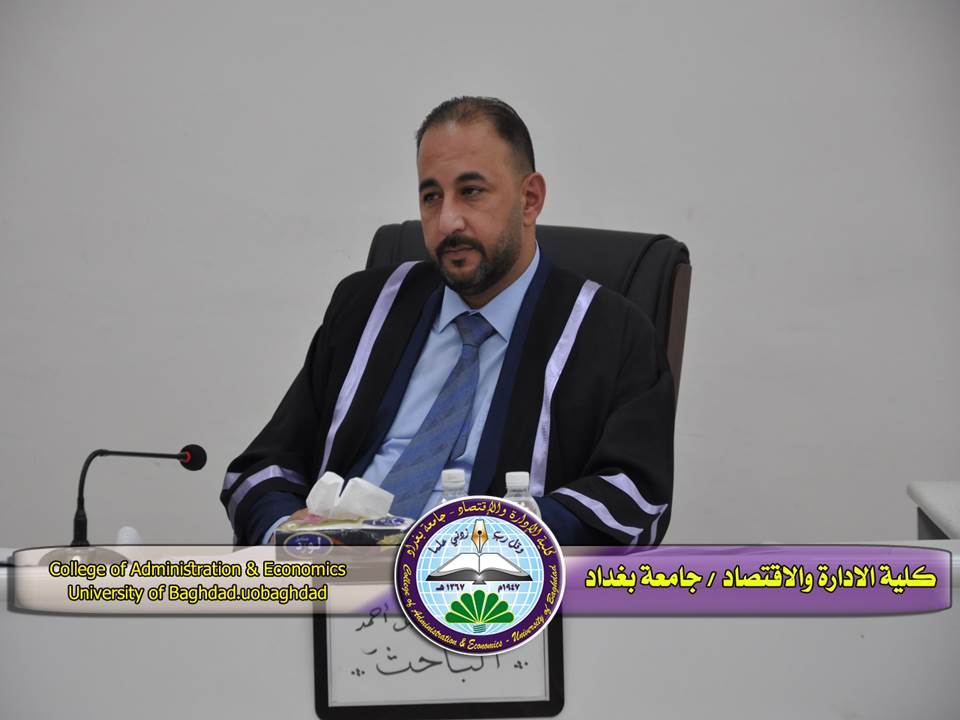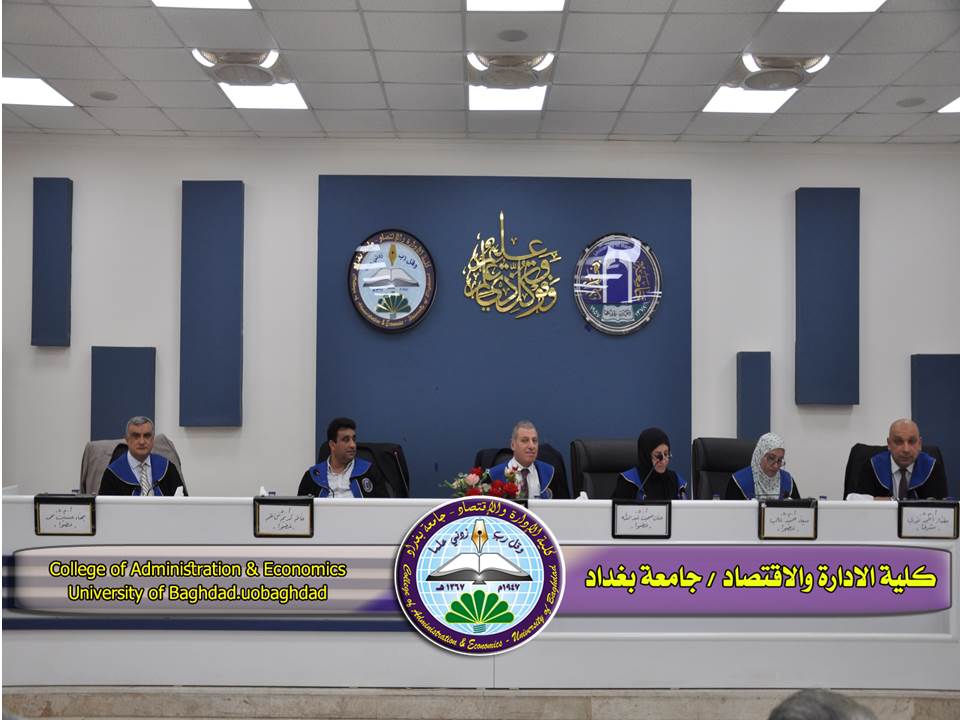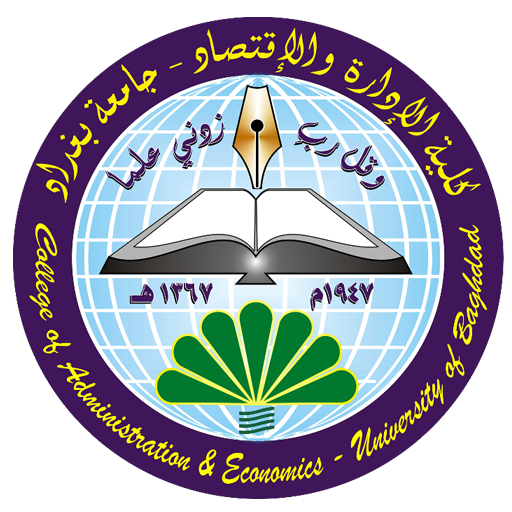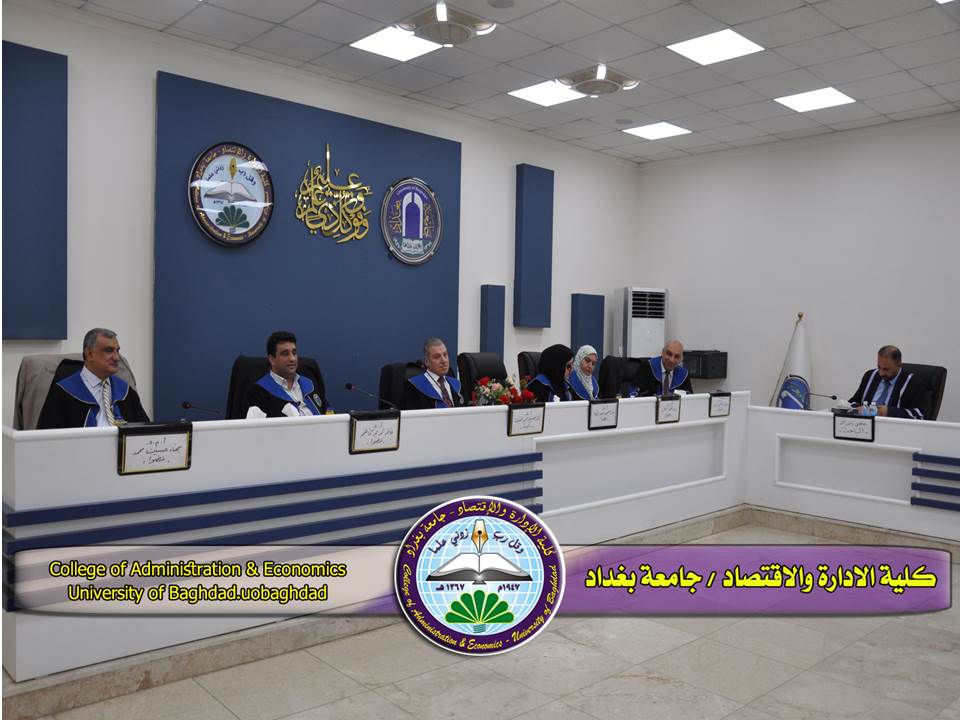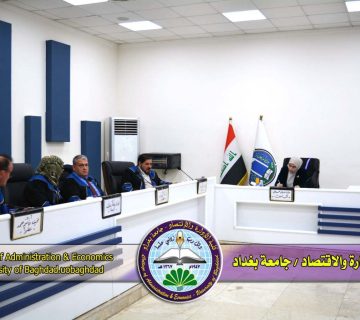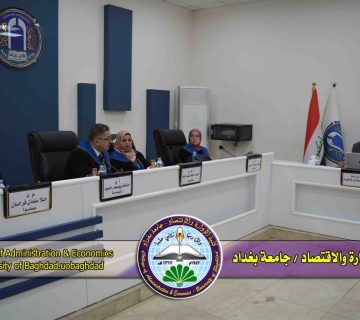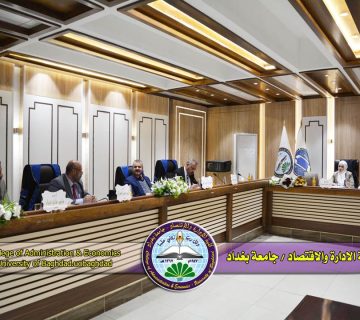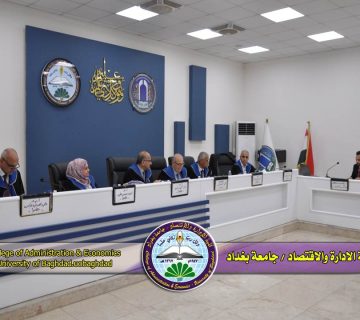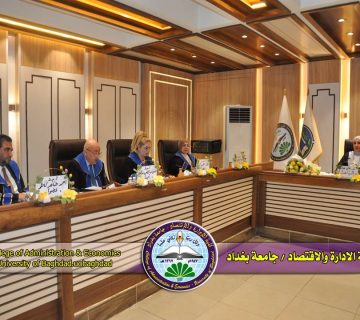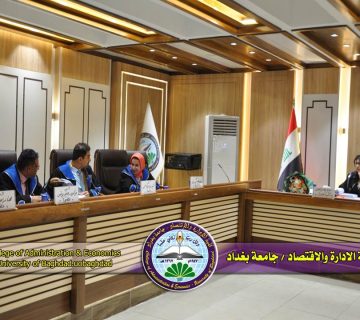The College of Administration and Economics at the University of Baghdad discussed, a PhD dissertation in field of accounting by the student (Mustafa Riyadh Ahmed ) and tagged with (Measuring the costs of sustainable manufacturing according to fast-track and its role in achieving sustainable competitive advantage for Iraqi economic units ) , Under supervision of (Assist.Prof. Dr. Muqdad Ahmed Nouri ).
The research addresses the measurement of sustainable manufacturing costs according to accelerated implementation to achieve sustainable competitive advantage by using tunnel formwork in the construction industry. This approach helps achieve high levels of environmental protection, reduces negative pollution impacts, and shortens project timelines in terms of both time and cost, leading to more efficient project delivery compared to traditional methods. The research aims to explore the feasibility of measuring sustainable manufacturing costs under accelerated implementation in construction projects and achieving sustainable competitive advantage. It examines the cognitive and philosophical foundations of sustainable manufacturing and accelerated implementation, highlights their importance and benefits, and outlines key differences between traditional and sustainable methods. It emphasizes the stages of sustainable manufacturing, measures the costs involved, and proposes a model to assist the project in achieving sustainable competitive advantage.
To achieve the research objectives and test its hypothesis, the Iraq Gate project was chosen for application of the proposed model, analyzing its contribution to achieving sustainable competitive advantage. The researcher concluded several findings, most notably that the economic dimension index for traditional buildings was 11%, while for buildings using sustainable manufacturing under accelerated implementation, it was 19%, indicating an 8% difference. This suggests satisfactory profitability levels for all buildings utilizing sustainable manufacturing under accelerated implementation in the sample. Additionally, the environmental dimension index for brick, which had the largest environmental impact at 38%, was significantly reduced using sustainable manufacturing with tunnel formwork. The social dimension index also showed a notable time reduction of 24 months through accelerated implementation, representing 23% of the total social impact. Moreover, sustainable manufacturing under accelerated implementation leads to more efficient projects compared to traditional methods, with an average project duration reduction of 33.33% and a cost reduction of up to 7.02%. Therefore, applying sustainable manufacturing with accelerated implementation significantly enhances project scheduling expertise and sustainable competitive advantage for the economic unit.
